



























Airlines, Airports and Airliners News 12 to 18 April 2021

TRANSFORMATION AND SOLIDARITY KEY TO POST-PANDEMIC RECOVERY, ICAO TELLS TOURISM CRISIS COMMITTEE ?

Speaking to the UNWTO Global Tourism Crisis Committee and Commission for the Middle East yesterday, ICAO Secretary General Dr. Fang Liu noted that ongoing pandemic impacts on international mobility reveal that the world is “back to 2003 levels in terms of global seat capacity.”
“Here in the Middle East, passenger totals dropped by over 70% and recovery in general is proceeding more slowly than in some other areas of the world, mainly due to the high levels of international passenger movements here,” Dr. Liu emphasized.
Stressing that the precipitous decline in air traffic continues to present severe liquidity strains to companies and suppliers throughout the air transport and tourism value chains, the ICAO Secretary General identified three key priorities for the global industry sector recently endorsed by the ICAO Council's Aviation Recovery Task Force (CART).
In the first, she drew attention to was the establishment of national and regional risk management strategies to gradually open air routes based on mutually recognized public health measures.
“Success here will heavily rely on national decision-makers taking fuller account of air transport's role as an enabler and multiplier of economic recovery,” she noted, “and ICAO continues to raise global awareness on this point.”
The second area of priority Dr. Liu highlighted was the possibly profound long-term implications for traditional air transport business models and operations post pandemic.
“Industry structure, market demand and customer expectations will all be impacted, and each of these in turn could lead to new approaches to operations, network and fleet management and product design and pricing,” she commented. “Given that over 50% of cross-border travellers formerly arrived by air pre-pandemic, the implications for tourism markets in light of these significant evolutions in air transport could be profound.”
Another of the serious implications for the sector which Dr. Liu stressed was the advancing digital evolution in many air transport systems and processes, noting this will only accelerate as governments and industry confront expectations for passenger health screening and globally-interoperable digital health credentials.
The third key area Dr. Liu identified was the priority for the aviation and tourism sectors to learn together from COVID-19 to improve overall air transport crisis preparedness, enhance economic and environmental sustainability, and enable smarter operations.
She noted ICAO will be convening a High-Level Conference on COVID-19 this coming October.
AIR CARGO DEMAND UP 9% IN FEBRUARY COMPARED TO PRE-COVID LEVELS
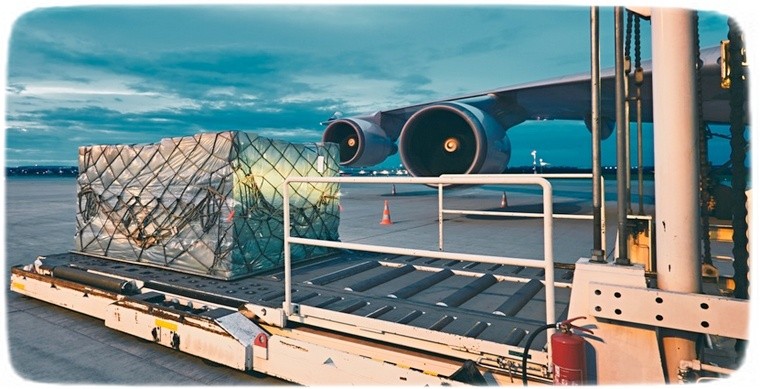
The International Air Transport Association (IATA) released February 2021 data for global air cargo markets indicating that air cargo demand continued to outperform pre-COVID levels with demand up 9% over February 2019. February demand also showed strong month-on-month growth over January 2021 levels. Volumes have now returned to 2018 levels seen prior to the US-China trade war.
Because comparisons between 2021 and 2020 monthly results are distorted by the extraordinary impact of COVID-19, unless otherwise noted, all comparisons to follow are to February 2019 which followed a normal demand pattern.
Global demand, measured in cargo tonne-kilometers (CTKs*), was up 9% compared to February 2019 and +1.5% compared to January 2021. All regions except for Latin America saw an improvement in air cargo demand compared to pre-COVID levels and North America and Africa were the strongest performers.
The recovery in global capacity, measured in available cargo tonne-kilometers (ACTKs), stalled owing to new capacity cuts on the passenger side as governments tightened travel restrictions due to the recent spike in COVID-19 cases. Capacity shrank 14.9% compared to February 2019.
Conditions in the manufacturing sector are robust despite the recent spike in COVID-19 outbreaks. The global manufacturing Purchasing Managers' Index (PMI) was at 53.9 in February. Results above 50 indicate manufacturing growth versus the prior month.
The new export orders component of the manufacturing PMI - a leading indicator of air cargo demand- picked up compared to January.
Supply chain disruptions and the resulting delivery delays have led to long supplier delivery times - the second longest in the history of the manufacturing PMI. This typically means manufacturers use air transport, which is quicker to recover time lost during the production process.
The level of inventories remains relatively low compared to sales volumes. Historically, this has meant that businesses had to quickly refill their stocks, for which they also used air cargo.
“Air cargo demand is not just recovering from the COVID-19 crisis, it is growing. With demand at 9% above pre-crisis levels (Feb 2019), one of the main challenges for air cargo is finding sufficient capacity. This makes cargo yields a bright spot in an otherwise bleak industry situation. It also highlights the need for clarity on government plans for a safe industry restart. Understanding how passenger demand could recover will indicate how much belly capacity will be available for air cargo. Being able to efficiently plan that into air cargo operations will be a key element for overall recovery,” said Willie Walsh, IATA's Director General.
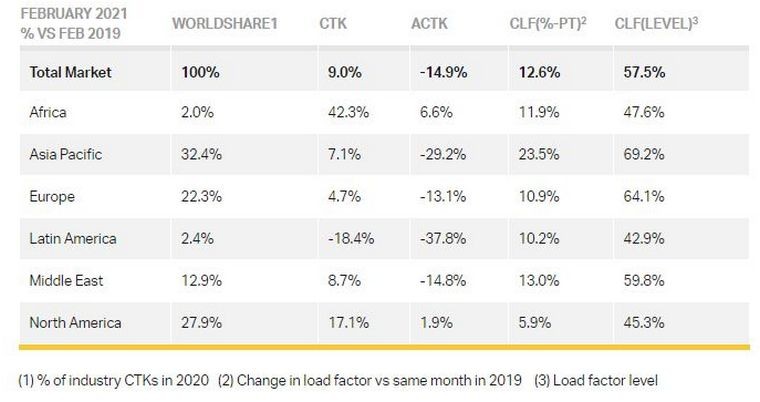
Asia-Pacific airlines saw demand for international air cargo rise 10.5% in February 2021 compared to the same month in 2019. As the main global manufacturing hub, the region has benefited from the pickup in economic activity. Demand in the majority of the region's key international trade lanes has returned to pre-COVID-19 levels. International capacity remained constrained in the region, down 23.6% versus February 2019. The region's airlines reported the highest international load factor at 77.4%.
North American carriers posted a 17.4% increase in international demand in February compared to February 2019. Economic activity in the US continues to recover, supported by the rising demand for e-commerce amid lockdown restrictions. Demand grew 39% on the Asia - North America route vs February 2019. The business environment for air cargo remains supportive; the $1,400 stimulus checks to US households will likely drive further growth in e-commerce and the level of inventories remains relatively low compared to sales volumes. Historically, this has meant that businesses had to quickly re-stock for which they also used air cargo. International capacity grew by 4.4% in February compared to 2019.
European carriers posted a 4.7% increase in demand in February compared to same month in 2019. Cargo demand was largely unaffected by the new lockdowns in Europe and the operating conditions remain supportive for air cargo. International capacity decreased by 12.5% in February,
Middle Eastern carriers posted an 8.8% rise in international cargo volumes in February versus February 2019. Of the region's key international routes, Middle East-Asia and Middle East-North America have provided the most significant support, rising 27% and 17% respectively in February compared to February 2019. February capacity was down 14.9% compared to the same month in 2019.
Latin American carriers reported a decline of 20.5% in international cargo volumes in February compared to the 2019 period; this was a deterioration from January when demand was down the 17.5% on 2019 levels. Drivers of air cargo demand in Latin America remain relatively less supportive than in the other regions. International capacity decreased 43.0% compared to February 2019. Weakness within the Central and South America markets, which dropped around 40% compared to February 2019, continued to outweigh the full recovery seen on North - Central America routes, which saw levels increase 10% compared to February 2019 levels.
African airlines' cargo demand in February increased a massive 44.2% compared to the same month in 2019, the strongest of all regions. Robust expansion on the Asia-Africa trade lanes contributed to the strong growth. February international capacity grew by 9.8% compared to February 2019.
SUMMER 2021: AIR FRANCE INCREASES SERVICES TO LEISURE DESTINATIONS IN FRANCE, EUROPE AND NORTH AFRICA
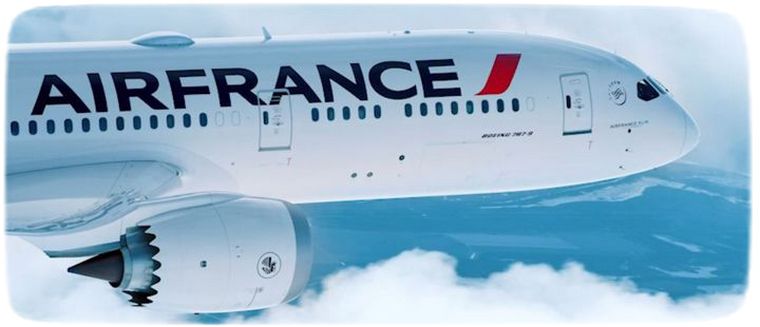
With 39 seasonal routes on the medium-haul network, Air France will offer its customers a wide choice of destinations. This summer, the airline is adding 14 new routes to its network:
Paris-Charles de Gaulle to/from Tangiers and Agadir (Morocco), Monastir (Tunisia), Valletta (Malta), Las Palmas (Canary Islands, Spain), Corfu and Rhodes (Greece) from 5 July 2021
Paris-Orly to/from Bari (Italy) as of 31 May 2021, Ibiza (Spain) and Algiers (Algeria) as of 28 June 2021
Marseille-Provence to/from Catania (Italy) from 26 June 2021 and Corfu (Greece) from 19 July 2021
Nice-Côte d'Azur to/from London (UK) and Tunis (Tunisia) from 28 June 2021
?8 new routes in France
Air France will also accompany its customers on their travels in France. 41 seasonal routes will be available, including 8 new ones:
Paris-Charles de Gaulle to/from Ajaccio, Bastia, Calvi and Figari from 5 June 2021
Perpignan to/from Brest, Strasbourg and Nantes from 25 June 2021
Biarritz to/from Caen from 25 June 2021
All flight schedules and fares are available online at airfrance.com.
Air France will shortly be detailing its long-haul flight schedule for the 2021 summer season.
This flight schedule is subject to change depending on travel restrictions. Since the beginning of the COVID-19 crisis, Air France has been adjusting its offer in real time, taking into account changes in the health situation.

The COVID-19 vaccine was the first batch ordered by Taiwan to be delivered by a Taiwan-based carrier. A vaccine transport task force set up by China Airlines immediately jumped into action. AZ vaccine must be kept between 2 to 8 degrees Celsius during transportation. To ensure that the vaccine could be delivered on schedule, guaranteed cargo space was provided by China Airlines. A dedicated pharmaceutical-grade temperature-controlled vehicle was ordered to transport the cargo directly from the pharmaceutical plant to Schiphol Airport.
The 199,200 doses of vaccine were temporarily placed in a temperature-controlled warehouse after arriving at Schiphol Airport. The packaged vaccines were carefully processed by China Airlines and built up on the pallet by authorized cargo agents. After making sure that everything had been secured, the pallet was escorted to the apron to minimize transit time then loaded into the belly hold of the A350-900. The vaccine was placed in forward compartment so that it could be unloaded as quickly as possible upon arrival. The air-conditioning system was switched on by the captain in advance to pre-cool the hold to ensure that it would be maintained between 2 to 8 degrees Celsius throughout the flight.
China Airlines drew on its years of experience with cold chain logistics for the latest vaccine transport mission. Warehouse check-in, cargo build-up, pallet loading, and unloading processes were all carried out with the ease of long practice. Cargo handling personnel also double-checked and took photographs during every step of the process. Flight CI074 flew directly from Amsterdam to Taipei as fast as possible. Once the vaccine arrived in Taiwan, it was unloaded right away at the designated apron and towed to the warehouse to be processed as priority cargo. It was loaded into a refrigerated truck and delivered to the consignee. The entire process was monitored to keep the vaccine refrigerated and quality assured.
China Airlines began developing its pharmaceutical cold chain logistics service in 2013 and became the first carrier in Taiwan to receive CEIV Pharma certification from the International Air Transport Association (IATA). This certification qualifies the carrier to provide a secure and stable temperature-controlled environment for certain vaccines and drugs. The drugs being shipped must be maintained at the required temperature range throughout each link of the cold chain. Temperature-controlled containers are not only loaded last but must also be given priority for unloading and warehouse entry. The cargo hold must be temperature-controlled throughout the flight as well. China Airlines maintains close ties with leading cold-chain cargo forwarders and general sales agents around the world as well. Door-to-door delivery packages are offered based on vaccine shipping plan to ensure a seamless transition between every stage of the transportation process.

The event was graced by Minister of Science, Technology, and Innovation, Khairy Jamaluddin; United Nations Resident Coordinator for Malaysia, Singapore and Brunei, Stefan Priesner as well as representatives from key partners from both the government and private sectors.
With 66 initiatives already in various phases of implementation across 23 sustainability matters from 5 key focus areas, namely Economic, Governance, Safety and Security, Environmental and Social, the Blueprint will also function as a driver to accelerate and support these initiatives into the future.
In the long run, our sustainability initiatives will drive us to be a more responsible, efficient and effective organization, with the character and mindset to be environmentally responsible, the leadership to empower and develop our workforce expertise, the responsibility to spearhead safety leadership, the experience to go above and beyond compliance and the ingenuity to maintain and grow profitability and resilience. Together we will create a greener world, to ensure the lives we touch may continue to flourish and actively play our role as the national carrier and helping the nation fly ever higher.”
Notably, Malaysia Airlines has engaged in carbon offsetting initiatives in line with CORSIA, Carbon Offsetting and Reduction Scheme for International Aviation, that was set by the ICAO in 2016. The group has been hard at work in pushing digitalization efforts, with its ground handling unit AeroDarat recently launching its e-AHAN, which helped digitalize and automate the often manual and tedious process of billing, leading to shorter processes and faster lead times.
As a starting goal for the blueprint, the group will work towards bringing several aspects of the business up to industry-leading standards in line with the United Nation's Sustainable Development Goals for 2030. Sustainability program will contribute to SDG aspiration not only for aviation emission reduction and fuel conservation, but also on the SDG 5 (Gender Equality by increasing the number of women in decision making positions), SDG 8 (Decent Work and Economic Growth through gainful employment), SDG 12 (Responsible Consumption and Production on all our products that leads to more circular economy user), and SDG 13 (Climate Change which is key elements to be instilled in all MAG employee).
Given the global consensus on the SDGs and the growing consumer demands for socially responsible and environmentally sustainable business practices both in Malaysia and globally, there is a strong case for businesses to come together and accelerate the sustainability agenda in all sectors.”
Moving forward, the group aims to reduce the overall CO2 emission by 25 million tonnes in 2021, with an eye to reach 50% usage of biodegradable materials for in-flight operations coupled with 50% of ground and in-flight waste recycled and up-cycled by 2025 onwards.

Iberia is working with the International Air Transport Association (IATA) on the development of the digital health passport known as the IATA Travel Pass and it will be the first airline to launch it in Europe-Latin America routes, specifically in Uruguay, on its Madrid-Montevideo flights.
The IATA Travel Pass provides a consistent, predictable and safe framework on a global basis with the dual aims of simplifying the travel experience and encouraging people to fly, while also streamlining the process of verifying the requisite health documents.
The new IATA Travel Pass is a smartphone app where the traveller can store, manage, and verify the health documents required by the different countries, specifically certificates of Covid-19 test results, and soon, vaccination certificates as well.
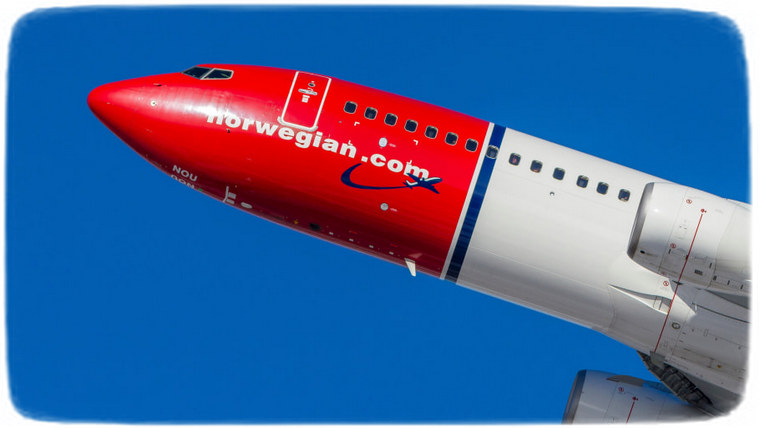
The Oslo County Court has approved Norwegian's reconstruction plan in Norway. Reaching this milestone means that both the group's reconstruction processes in Ireland and Norway have now been approved by the courts. The company will now prepare the process of raising new capital.
The court reached a positive conclusion after the creditors approved the Norwegian reorganization plan in a reconciliation period that ended on Friday 9 April.
“We are very pleased with this important positive decision by the court. Once we have passed these two biggest legal milestones, we can look forward to continuing the work of raising new equity.” says Jacob Schram, CEO of Norwegian.
“I stand very proud of the achievements that Norwegian has accomplished throughout this period and I am grateful to work alongside so many colleagues that have shown such unwavering commitment and determination for us to succeed. At the same time, I wish to recognise the crucial support that we have received which has enabled us to continue our business.”
The rulings in both Ireland and Norway become final when the planned equity has been obtained. The capital raise is expected to be completed during the month of May.
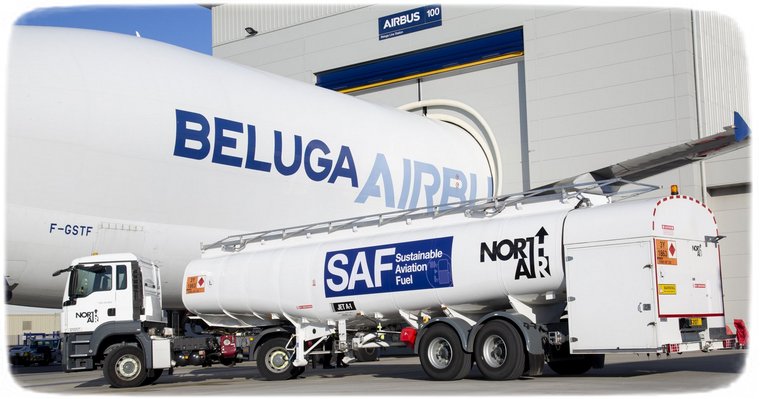
The north Wales line station, which uses the Beluga fleet to transport aircraft wings to Toulouse, Hamburg and Bremen, becomes the second Airbus European site to use SAF, after Hamburg introduced the fuel to its cargo activities at the end of 2019.
“This first flight by a Beluga transporter from Broughton, partially fuelled with SAF, marks an important milestone in Airbus' ambition to decarbonise its industrial operations,” said Tony Derrien, Sustainable Aviation Fuels Project Manager, Airbus.
“Combined with our ongoing research into the potential for 100% SAF in commercial flights, reducing fossil-fuels in our own operations underlines Airbus' commitment to lessening the impact of our manufacturing footprint and contributing towards a more sustainable future for the aviation sector more generally.”
Sustainable aviation fuels are currently certified by regulators for up to 50% use in commercial flights; the Beluga fleet operating from Broughton will initially be loaded with a 35% blend of non-fossil derived fuel, set to reduce CO2 emissions by more than 400 tonnes over the next three months.
The SAF used by the Beluga fleet is made from used sustainable feedstocks, such as cooking oil and supplied to Airbus in Broughton and Hamburg by Air bp.
Andy Owen, Beluga Line Station Manager at Broughton, added: “The progressive deployment of sustainable aviation fuels at Airbus' sites is an essential part of our decarbonisation roadmap. We're proud that Broughton has become the second Airbus site to introduce SAF in its Beluga-fleet operations.”
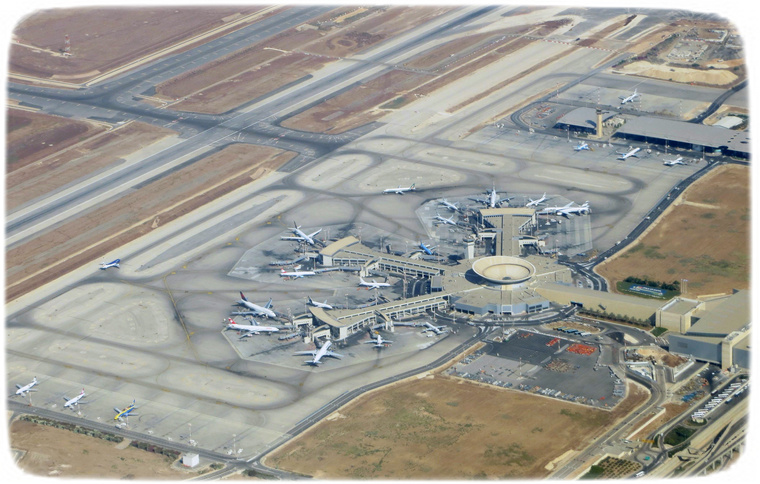
Etihad Airways, the national airline of the United Arab Emirates (UAE), recently launched its regular flight service between Abu Dhabi and Tel Aviv. Additionally, Israel was added to Abu Dhabi's 'green list', giving quarantine-free travel for visitors arriving in Abu Dhabi.
The launch of scheduled operations comes as the next historic step in developing diplomatic, trade and tourism ties between Israel and the UAE, which were inked as part of the Abraham Accords in September 2020.
Abu Dhabi's Etihad Airways EY598 was the first scheduled flight from Abu Dhabi International Airport to Ben Gurion International Airport. On board the flight was a diplomatic and economic delegation representing the UAE. The delegation includes H.E. Mohamed Al-Khaja, UAE's first Ambassador to Israel, Eitan Nae'eh, Israel's Head of Mission to the UAE and Tony Douglas, Etihad's Group CEO.
The flight landed at Ben Gurion Airport and was received with the traditional water cannon salute. A welcome reception followed, with speeches given by the UAE's Ambassador to Israel, Etihad's Group CEO and Shmuel Zakay, CEO, Ben Gurion International Airport.
The route will be operated by one of Etihad's flagship aircraft, the Boeing 787-9 Dreamliner. With 290 seats - 28 Business studios and 262 Economy smart seats, the Dreamliner features Etihad's renowned e-box entertainment system and inflight wi-fly connectivity network.
Etihad will initially offer two weekly flights between Abu Dhabi and Tel Aviv. The return flight, EY599 will connect passengers from Tel Aviv into Abu Dhabi, who will no longer be required to quarantine on arrival, now that Israel has been added to the Abu Dhabi 'green list'. As well as connecting with the UAE, passengers travelling from Tel Aviv can take advantage of onward connecting flights to 35 destinations worldwide, including major cities across Asia, the Indian sub-continent and Australia.
There is significant travel demand anticipated between Israel and the UAE and beyond, for both business and leisure travel purposes. This is bolstered by the fact that Israel and the UAE boast two of the highest vaccination rates in the world, giving potential for a vaccine corridor to further ease travel between the two destinations.
Etihad and the national carrier of Israel, EL AL, are continuing preparations for wide-ranging cooperation on the route and beyond. The partners signed a Memorandum of Understanding in November 2020 covering codeshare on each other's operations, a frequent flyer tie-up and cooperation in cargo, training and maintenance services.

Air bp, the international aviation fuel products and service supplier, has recently supplied sustainable aviation fuel (SAF) to three airports in the UK: dedicated business aviation airport, London Biggin Hill (BQH), Airbus owned Hawarden (CEG) airport in Flintshire, North Wales, which will be used for fuelling of the Beluga aircraft and Centreline FBO, in Bristol (BRS). All three locations expect to have SAF available on an ongoing basis. These latest supply agreements demonstrate the importance of collaboration between fuel supplier, airport and customer in driving demand for SAF and ultimately help to meet the industry's lower carbon goals.
The SAF supplied by Air bp is made from waste based sustainable feedstocks such as used cooking oil which is blended with traditional jet fuel. The SAF blend supplied is around 35% SAF and the SAF component provides a lifecycle carbon reduction of around 80% compared to traditional jet fuel it replaces.
Andreea Moyes, sustainability director, Air bp, said: “We are excited to see these ongoing commitments to SAF supply. Stakeholders' willingness to invest in SAF and collaborate with us will help drive demand and deliver carbon reductions compared to the traditional jet fuel it replaces. We are committed to working with stakeholders to explore the viable sale and purchase of SAF, which we believe is one of the aviation industry's key routes to reducing carbon emissions.”
Stephen Elsworthy, manager of fuel services at London Biggin Hill Airport, says: “By offering Air bp's sustainable aviation fuel to all our customers and resident businesses, we are helping them to meet their sustainability goals too, and vitally, contributing to our industry's aim for a net zero carbon future”.
Gus Paterson, chief operating officer of Centreline's parent company Pula Aviation Services Limited, says “In response to growing demand, we're delighted to be able to offer SAF to our customers and to support global efforts to decarbonise aviation. Air bp is fully committed to supporting its FBOs in understanding SAF and the impact and opportunities it can have for their business and ultimately identifying opportunities for SAF supply.”
Air bp was involved in fuelling the first SAF flight by an airline in February 2008 and since then has been enabling ground-breaking test flights and investing in sustainable alternative fuels.
PLEASE GO TO
www.youtube.com/channel/UCCuRVZAGodT6sztTeXBGeMw
and subscribe to our YouTube channel

 |
 |
 Copyright © 2024 Pilot's Post PTY Ltd
The information, views and opinions by the authors contributing to Pilot’s Post are not necessarily those of the editor or other writers at Pilot’s Post.
Copyright © 2024 Pilot's Post PTY Ltd
The information, views and opinions by the authors contributing to Pilot’s Post are not necessarily those of the editor or other writers at Pilot’s Post.